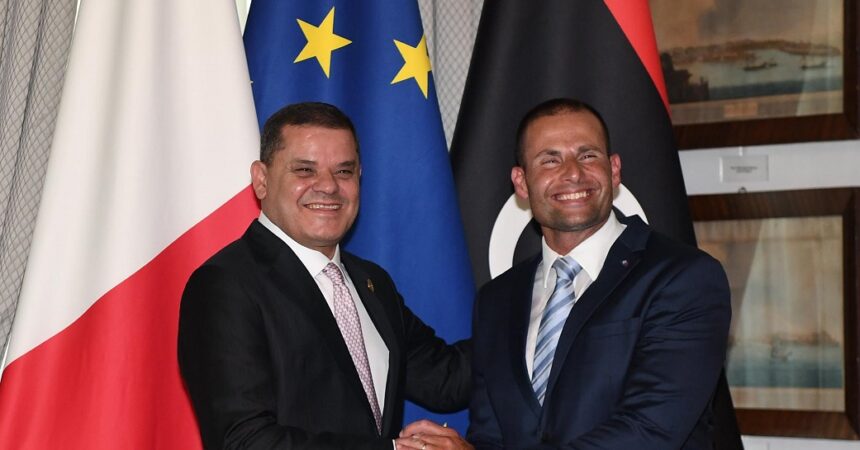Prime Minister Robert Abela and his Italian counterpart Giorgia Meloni pulled out of the Libya Energy & Economic Summit over the weekend, both of whom were due to give keynote speeches to the audience of energy and fossil-fuel stakeholders.
The Shift contacted the prime minister’s spokesperson, Edward Montebello, who said the Minister for Energy, Miriam Dalli, attended and “the PM had other engagements.”
Abela was scheduled to participate in the launch ceremony, giving a keynote speech alongside Meloni and Libyan Prime Minister Abdul Hamid Dbeibeh. However, Abela did not deliver in person, online, or even with a pre-recorded video message.
The Department of Information circular sent to newsrooms did not provide information on public-facing activities scheduled for Abela during the weekend.
The summit’s brochure said it aimed to “unite the entire energy sector together with other critical areas of the economy with the goal of creating and sustaining partnerships for energy and economic opportunity.”
Dalli still took part in the event, telling the audience that Libya is a strong partner in the energy field and has the opportunity to play a leadership role in the sector. A lot can be achieved, she said, if countries bordering the Mediterranean work together.
The summit was billed publicly as focussing on renewable energies, with the Maltese government set to discuss trade and commercial ties and explore the feasibility of a proposed renewable energy interconnector project.
This would establish a solar photovoltaic park in Libya that would supply Malta with energy. However, the agenda was packed full of representatives from fossil fuel and energy producers, including PetroGas, Eni, Tamoil, Total Energies, and Repsol. Speakers included executives of fossil fuel companies and energy and natural resource ministers from African countries.
None of the speakers or scheduled talks on the agenda seen by The Shift appear to deal with renewable energy, such as wind or solar power.
Green failures
The Shift reported on Malta’s scheduled attendance in the context of concerns over its failure to align with the EU’s clean, green, and sustainability rules.
For example, according to Eurostat, Malta has the second lowest share of energy from renewable sources for 2022 and is showing little improvement. Malta gets just under 14% of its energy from renewable sources while the EU has targeted member states with 42.5% by 2030.
Last year, the European Commission gave feedback on Malta’s National Energy and Climate Plan, describing it as “largely insufficient” and calling on the government to increase its share to at least 28%.
Malta is also pushing ahead with plans for a gas pipeline connecting to Italy despite gas being a fossil fuel that should be phased out.
The project is controversial as the pipeline would link to the power plant operated by Electrogas. One of the ultimate beneficial owners of Electrogas is Yorgen Fenech, currently awaiting trial for complicity in the assassination of Daphne Caruana Galizia. Fenech will be compensated up to €85 million under the contract terms if the plan goes ahead.
Partnerships with Libya have also been questioned due to concerns over corruption and human rights issues.
A recent report by The Sentry found that “A rapid expansion in the trafficking of drugs, fuel, and human beings and the outright theft of billions of dollars in public assets is transforming the country into a hub of transnational crime and an increasing threat to regional and international security.”
“When engaging with Western powers, senior Libyan politicians and technocrats portray themselves as invaluable allies, promising collaboration on terrorism, irregular migration, and hydrocarbon production. Some of Libya’s leaders are at the heart of an array of brazen, multibillion-dollar criminal ventures.”
In addition, Malta and Libya have both been widely criticised for their collaboration on illegal pushback of migrants in the Mediterranean and the treatment of migrants in Libyan detention centres.
Other stakeholders at the event addressed the security situation in Libya with Senior Vice President Middle East and North Africa for Total Energies, Julien Pouget, describing it as “very difficult”.













He was probably having lunch with JP on Gozo